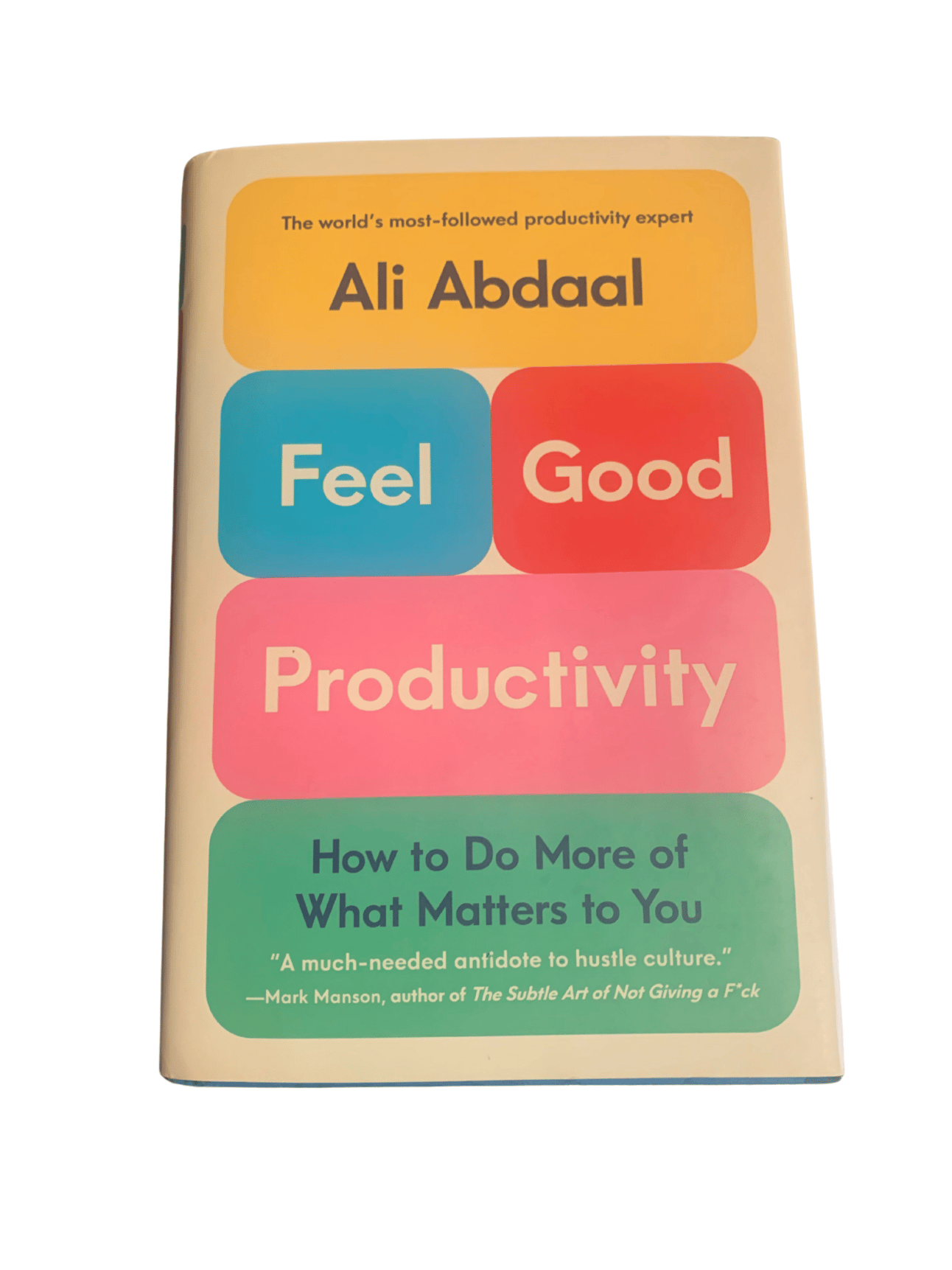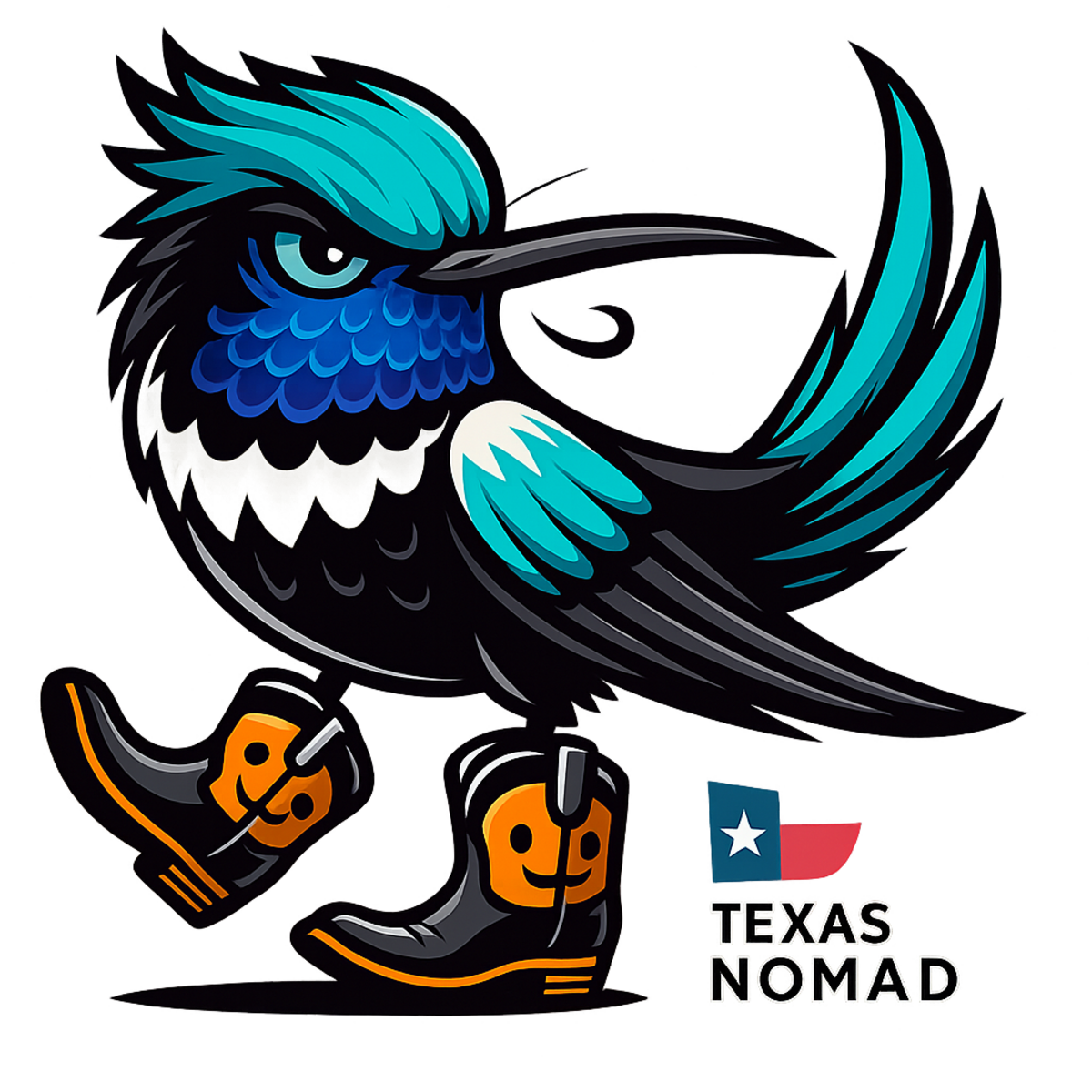Early in the morning, risin' to the street
Light me up that cigarette, and I'll strap shoes on my feet
Got to find the reason, reason things went wrong
Got to find a reason why my money's all gone
In Today’s Email
Rio’s Fact of the Day:
“Did you know hummingbirds travel up to 500 miles per day? And the boots don’t slow us down one bit!” — Rio
In Today’s Newsletter:
Deep Dive: How paradise can become a productivity graveyard—and how to avoid it.
The Read: Feel-Good Productivity by Ali Abdaal—does feeling good really make you more productive?
The Stream: Severance—new episodes are out, and it deserves a follow-up.
Newsletter News
We’re making a few changes to streamline the newsletter while keeping it just as engaging (if not more).
The Gear section isn’t going anywhere! Instead, we’re alternating The Read, The Stream, and The Gear each week to make sure each one gets the full Team Edward treatment.
Deeper Dives on Substack. If you see a Substack link in the newsletter, that means the post has a longer, expanded version over there—so if you want to go beyond the newsletter, the stacks have you covered.
What is the name of the fictional company where the severed employees work?
The Digital Nomad’s Trap: How Paradise Becomes a Productivity Graveyard
You quit your job, booked a one-way ticket, and now you’re ‘working’ from a rooftop pool in Medellín. The dream, right? Except… you haven’t done any real work in five days.
You are a Content Creator with a TON of followers! However, you haven’t created anything because your head is still throbbing from the techno beats of last night’s full-moon molly party.
You’ve mastered the art of looking busy at coffee shops. Laptop open, fingers poised, but the only thing you’ve written today is a new excuse for why you’ll start tomorrow.
You tell yourself inspiration will strike. Just once you get settled, once you adjust, once you’ve “experienced enough,” the words will flow. But somehow, ‘enough’ never comes.
Everyone wants the digital nomad lifestyle, but nobody talks about how hard it is to actually be productive when you live in a place designed for relaxation and indulgence.
The hardest part of working remotely isn’t Wi-Fi issues or time zones—it’s that "paradise" is a terrible place to get things done.

Why Digital Nomad Life Is Harder Than You Think
💡 Too much freedom.
- When you can work anywhere, anytime, it’s easy to work nowhere, at no time.
- Productivity thrives on structure, but nomad life removes structure by default.
💡 The beach (or Zona Rosa) works against you.
- Any nomad hub is built to smell the roses, not to grow them. It’s a city designed for enjoyment, not relentless productivity.
The challenge for digital nomads isn’t finding a place to work—it’s resisting the pull of a city that constantly invites you to slow down, soak it in, and put off work for just one more day.
- Distractions in paradise are everywhere—day parties, late nights, weekend trips, new people constantly arriving. No one’s ever seen a cubicle on a beach.
- If you’re in an "exotic" location, people assume you’re on permanent vacation.
- Friends don’t get it, family thinks you’re unemployed, and new people assume you’re always free.
How To Stay Productive
1. Block Off Time for Deep Work
- My schedule follows a simple but strict rule:
- Hour 1: My morning routine (more on this next week!).
- Hours 2 & 3: Deep work block—this is my writing time, everything is OFF (phone on silent, no distractions).
- Afternoons are flexible, but I always front-load high-value work.
2. Train People to Respect Your Work Hours
- As a filmmaker, I’ve trained everyone not to interrupt me when I’m recording—no knocking, no distractions. The RED LIGHT is ON!
- The same goes for any deep work session. If people know you won’t answer texts or stop working, they’ll stop trying to pull you away.
3. Coworking as a Buffer Zone
- If the bed, YouTube, Netflix, or roommates, are too distracting, go to a coworking space. It acts as a physical boundary between work and social life.
- WeWork, Selina, or any focused coffee shop can help create that separation.
4. Find Your Own Nook & Don’t Tell Anyone About It
- Some coworking spaces are great, but they can become social hubs too.
- The real key? Find a quiet, secret spot—a coffee shop, a tucked-away library, a rooftop no one goes to—and don’t tell anyone about it.
- The fewer people who know, the fewer distractions you’ll have.
🎯 This keeps you in control. If you tell everyone your favorite work spot, next thing you know, it’s just another meetup spot full of distractions.

The Montoya Montoya Library. Is that where I am now? I’ll never tell.
5. Accept That You’ll Have to Miss Out Sometimes
- The hardest part? Choosing discipline over indulgence.
- Not every weekend can be an adventure. If you say yes to every invite, you’ll look back in a year and realize… you didn’t build anything.
— You are stronger than the distraction. Than the pina colada and the volleyball. You will show them!
(If you figure out this one please let me know in the comments.)
7. Invent Your Own Boss (Even If She’s Fictional)
The hardest part of being a digital nomad is staying accountable to yourself.
If no one is breathing down your neck to meet deadlines, and without structure, it’s easy to drift.
That’s why you need to create an external force of accountability—even if it’s imaginary.
Something I’ve done—and sorry if you’ve heard this before 😉—is literally make up a jerk boss.
- When people pressure me to ditch work, I say: “I’d love to, but I have to finish this for my boss, Mr. Ethan Nolan. Dude’s a taskmaster.”
Ok, he doesn’t actually exist—he’s the protagonist of my novel (and not a dick). But if I don’t write about him every day, I’m doing him a disservice.
The trick is psychological commitment.
If you frame your work as a duty to something larger than yourself—an audience, a long-term goal, or even a fictional boss—you create a sense of obligation.
This method isn’t about deception; it’s about disciplining your own mind to take your work seriously, and quickly removing obstacles.
- It works. People respect “I have to do this for my boss” more than “I just need to get some writing done.”
Having this mindset makes it easier to block off time, enforce boundaries, and say no to distractions.
If you don’t take your work seriously, no one else will.
🎯 You have to trick your brain into treating your work like it’s non-negotiable.
Boundaries = Freedom
If you let visitors (or the destination itself) dictate your schedule, you’ll get nothing done. But if you set clear boundaries, you can actually enjoy both productivity and social life—without the guilt.
📌 Best Rule: Work first, play second. When you flip the order, productivity dies.
→ Have you ever struggled with this while traveling? Comment below.
The Read - Feel Good Productivity by Ali Abdaal

How to Stop an Amygdala Hijacking
📚 Does Productivity Have to Feel Like Work?
Ali Abdaal makes over $500,000 per month talking about productivity on Youtube, so when he writes a book about making work feel good, I gots to check it out.
The big idea? You don’t have to grind yourself into dust to get things done, and you can still have fun while at it.
The book explores how ATN’s old friends, dopamine, serotonin, oxytocin, and endorphins can fuel productivity, which can be manipulated, and how.
However, at times, it feels more like an extended TED Talk—engaging and packed with ideas, but skimming the surface rather than digging deep.
The first 122 pages stretch thin, covering familiar ground. If you’ve read other productivity books, much of this will feel like a retread.
But some ideas stand out: Fear—not laziness—is what really holds us back.
Abdaal discusses Amygdala Hijacks—how our brain overreacts to social and creative risks like pitching an idea, applying for a job, or even starting a creative project.
He suggests “affective labeling”—naming the fear—to break its grip.
He also introduces If-Then Planning—a powerful tool for habit-building, something we saw with James Clear also—but really discovered by Peter Gollwitzer:
If X happens, then I will do Y.
This technique helps automate decision-making and reduce willpower fatigue.
One contradiction: he warns against monetizing hobbies, yet his entire career is built on turning a hobby into a million-dollar business.
I happened to read this RIGHT AFTER launching my LEGO YouTube channel a few days ago, (still as empty as a half-built lego set 😉): EddieMacNCheese.
So, was I already doing it wrong? Or is it just another case of "Do as I say, not as I do"?
If you’re new to productivity books, Feel-Good Productivity is a solid starting point. If you’ve already explored the genre, you may find it repetitive.
The Stream - Severance - Part II (sans spoilers)

Lumon’s Up to Some Baaaaaa’d Stuff
Work / Life Balance — Literally
We’ve covered Severance in a previous issue, but now that new episodes have dropped, it deserves a follow-up.
This show is only getting deeper, darker, and more relevant to the way we think about productivity, work, and identity.
If you’ve ever wished you could separate work from life—like, truly separate—Severance explores what happens when that wish becomes reality.
It’s a gripping, eerie reflection of hustle culture and the extreme consequences of chasing productivity at all costs.
Severance introduces us to Lumon Industries, where employees undergo a procedure that splits their consciousness into two versions: one that only exists at work (Innie) and one that only exists outside of it (Outie).
The two never meet, never share experiences, never even know what the other does.
For the Innie, work is endless.
They never go home, never rest, never escape. For the Outie, work is a black hole—no stress, no emails, just a void.
It sounds like the dream, right? Until you realize the nightmare: if work is all you know, is that even a life?
This week’s A Texas Nomad newsletter is about how too much freedom can be a productivity graveyard.
Severance flips that idea: what if you had no freedom at all? Instead of endless distractions, the severed employees are trapped in pure focus.
But is it real productivity?
Or just mechanical, meaningless work?
The show forces us to confront whether our obsession with optimization and hustle culture is making us less human, like the character of Harmony Cobel.
Few actors can command quiet menace like Patricia Arquette.
As Harmony, she embodies the ultimate corporate overlord—calm, polite, and terrifying in her absolute devotion to the system.
Every scene drips with tension, making her THE most compelling villain on TV.
The new season deepens the mystery, the psychological tension, and the existential horror.
The Innie and Outie struggles become more intertwined, rebellion looms, and every scene feels sharper, more urgent.
Ben Stiller’s direction remains flawless, crafting sterile hallways that make us feel trapped and double-back both physically and psychologically.
Here’s a thought—Severance might just be the ultimate digital nomad dream.
Imagine a world where your Outie travels, lives freely, and enjoys paradise while your Innie grinds away at work, completely unaware.
No work stress, no deadlines hanging over your head—just pure separation.
Let the Innie deal with the hangover. For Outie, it’s party time.

Of course, that kind of disconnect raises some serious ethical questions, but hey, Severance: The Digital Nomad Edition?
Spinoff show, anyone?
Severance isn’t just great TV—it’s a warning, a question, a mirror.
In a world where we blur work and life, it asks: are we working to live, or living to work?
If you haven’t watched yet, start now. If you have, these new episodes prove that Severance is only getting better.
Rating: 9/10
📩 Enjoying the newsletter? Share it with a friend who needs a productivity boost and help us grow this community of bold thinkers and doers!
Happy Trails,

Edward McWilliams
Epiphanies are hidden in the most ordinary of moments: the casting of a shadow, the smell of a match ignited, an unusual phrase overheard or misheard.”


